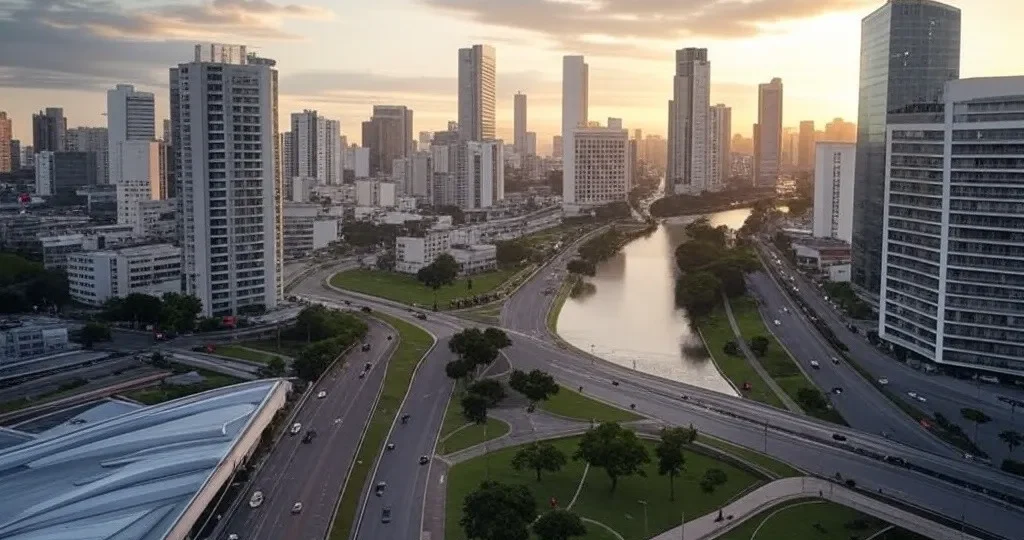
Why Brazil? A Promising Market Despite the Bureaucracy
Brazil is Latin America’s largest economy and a gateway to over 200 million consumers. It offers abundant opportunities in sectors like agtech, fintech, renewable energy, logistics, and e-commerce. However, one key challenge persists: how to navigate Brazilian bureaucracy when starting a business.
This guide is tailored for foreign investors and international companies looking to enter the Brazilian market confidently and legally — without getting lost in red tape.
Why Learning How to Navigate Brazilian Bureaucracy Matters
The perception of Brazil as a bureaucratic market stems from:
Fragmented federal, state, and municipal regulations
Legacy systems requiring formalities like notarizations
Constant legal updates and regional variations
Yet, Brazil is evolving. Tools like REDESIM and Gov.br have drastically accelerated business registration timelines in many states.
Choosing the Right Business Structure in Brazil
| Entity Type | Best For | Foreign Access | Notes |
|---|---|---|---|
| MEI (Microentrepreneur) | Ultra-small operations | ❌ Not for foreigners | Highly restricted |
| LTDA (Limited Liability Company) | SMEs with local partners or subsidiaries | ✅ Yes | Most common choice |
| S/A (Corporation) | Large or listed companies | ✅ Yes | Best for raising capital |
📌 Tip for Foreigners: Foreigners need a Brazilian tax ID (CPF), and most will work through a LTDA or S/A, often with local legal representation.
Essential Registrations and Legal Steps
To operate in Brazil, you must register at different levels:
Junta Comercial (State Business Registry)
CNPJ from the Receita Federal (Federal Revenue Service)
Municipal and/or State Registration depending on services or goods
💡 Use the REDESIM platform to consolidate all these steps into one digital process in many regions.
📎 For official guidelines, visit Gov.br – Brazilian Government Portal.
Sector-Specific Licensing
Depending on your sector, you may need:
Operating License from city hall
Health Permit from ANVISA or local health authorities
Environmental Clearance from IBAMA or state agencies
📌 Pro Tip: Brazilian compliance is strict. Always consult local legal and environmental experts early in the planning process.
Brazilian Taxation: Choosing the Right Regime
Brazil’s tax burden is among the highest globally — but can be optimized.
Choose from:
Simples Nacional: Simplified, capped at R$ 4.8 million/year
Lucro Presumido: For mid-sized firms with stable revenue
Lucro Real: For larger corporations or businesses with slim margins
💼 Investor Insight: Many multinationals start under Lucro Real for better control and transparency with tax planning.
Digital Tools That Simplify the Process
Platforms every investor should know:
Gov.br: Central login for business and personal services
Receita Federal portal: For tax and fiscal obligations
JUCESP, JUCERJA, etc.: State-specific business registries
SEFAZ: State tax authorities for ICMS obligations
✅ Registering your business digitally has never been faster — especially in São Paulo, Rio de Janeiro, and Minas Gerais.
Why Legal Support Helps Navigate Brazilian Bureaucracy
Hiring a bilingual accountant and corporate lawyer is highly recommended. They will:
Ensure regulatory compliance
Help choose the optimal tax regime
Translate and notarize required documents
Represent you in local authorities if needed
Successfully navigating Brazilian bureaucracy requires proper legal advice and local knowledge. These professionals also help you reduce risks and avoid penalties.
Compliance Tips When Navigating Brazilian Bureaucracy
Always issue NF-e (electronic invoices) correctly
Track INSS, FGTS, IRPJ contributions (labor and corporate taxes)
Submit DCTF, SPED and other filings on time
Maintain backups of legal contracts and receipts
🚨 Compliance penalties are high. Automate tasks through cloud-based ERPs like Omie, Conta Azul, or SAP Business One (localized version).
Case Studies: Companies That Conquered Brazilian Bureaucracy
Amazon: Adapted to local tax and logistics systems to lead in e-commerce
XP Inc.: A homegrown brokerage firm that thrived under startup-friendly laws
BMW Brazil: Built manufacturing plants by aligning with state and federal incentives
Each success shows that understanding how to navigate Brazilian bureaucracy is manageable with expertise and patience.
Cultural Intelligence for Foreign Founders
Doing business in Brazil is also about relationships and trust. Here’s what helps:
Be prepared for face-to-face negotiations
Allow for flexible timelines
Hire locals who understand regulatory and cultural nuances
🌍 Brazil values long-term partnerships, not quick wins.
Conclusion: Bureaucracy Is a Barrier — and a Competitive Advantage
Yes, Brazil’s bureaucracy is complex. But by learning the system and using available tools, you gain a strategic edge over competitors who give up early.
Foreign investors who plan thoroughly, hire the right experts, and embrace Brazilian business culture can turn red tape into a launchpad for growth.
Finally, never underestimate the importance of seeking professional assistance from experts like LegalBR to navigate the complex process of starting a business in Brazil.

FAQs: How to Navigate Brazilian Bureaucracy
1. Can I own 100% of a Brazilian company as a foreigner?
Yes, except in restricted sectors (e.g., media, rural land). You need a local representative and CPF.
2. Do I need to visit Brazil to open a business?
Not always. Many states allow remote setup with legalized and translated documents and a local proxy.
3. What’s the minimum capital required?
No minimum for LTDA, but banks may ask for R$ 10,000+ to open corporate accounts.
4. How long does it take to go operational?
With digital tools, as little as 7–15 days. Paper-based processes can take longer.
5. How can I repatriate profits from Brazil?
Through authorized financial institutions, following Central Bank (BACEN) rules. Taxes may apply.
6. Can I start a franchise or subsidiary in Brazil?
Yes. Franchises must be registered with INPI. Subsidiaries follow standard CNPJ and local rules.












